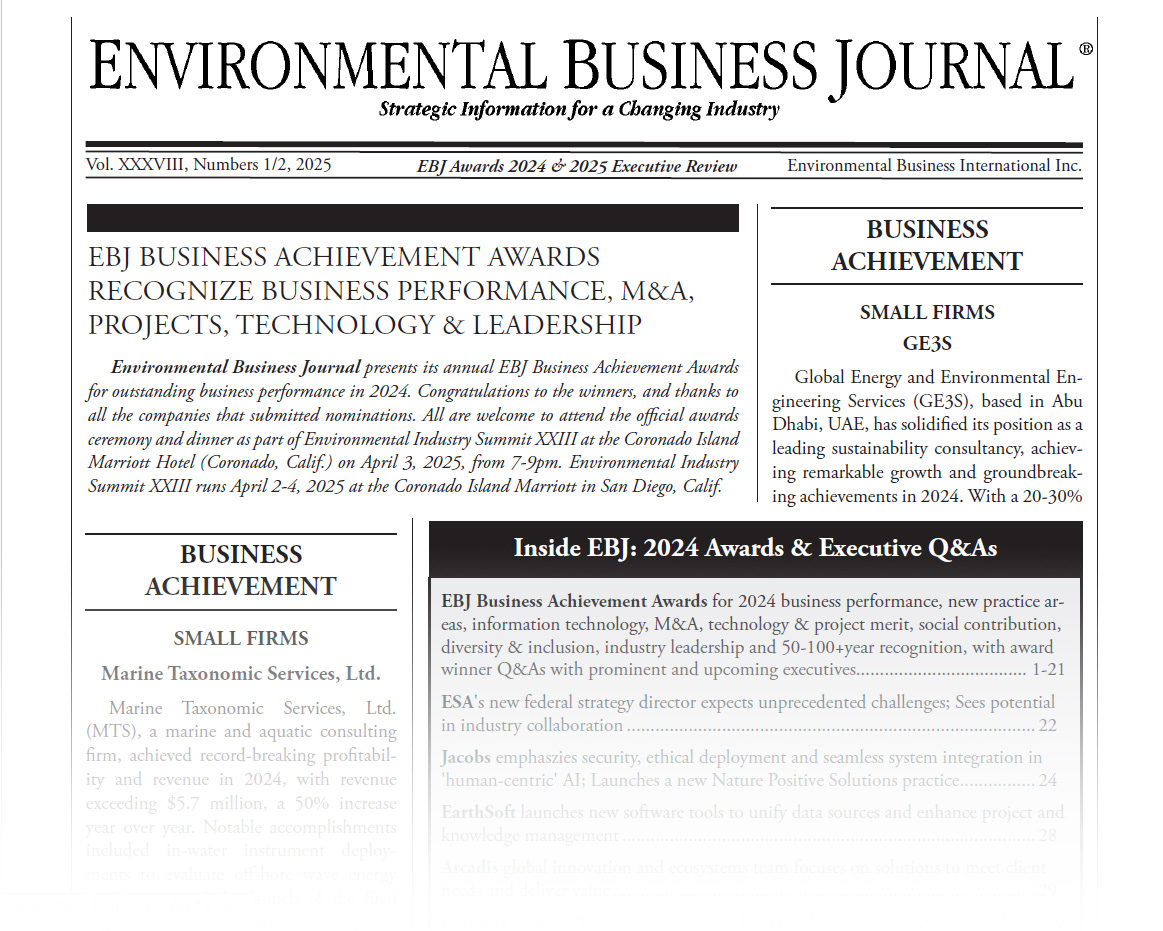From Rocky Flats to Bhutan: Lessons Learned by a Locus Pro
Reflecting on Marian Carr’s 22 years at Locus Technologies.
Reflecting on Marian Carr’s 22 years at Locus Technologies.
At Locus, our Environmental Information Management (EIM) system stores an extensive array of data locations, field samples…

Locus Technologies Scales Its EHS Information Platform; Adding Clients, Regions & Seamless Integration
Neno Duplan, Founder & CEO. Dr. Duplan is a pioneer in environmental information management and cloud-based sustainability solutions. As the founder and CEO of Locus Technologies, he has nearly 30 years of experience applying advanced computing to environmental, water, and energy industries. Locus has become a global leader in on-demand environmental data management, helping organizations track and comply with sustainability and regulatory requirements. Dr. Duplan continues to drive cloud and AI-powered innovations for sustainability, ensuring companies can efficiently manage emissions, water, and compliance data.
Environmental Business Journal, Volume 38 Numbers 1/2: Q1 2025
EBJ Awards 2024 & 2025 Executive Review
Inspections and audits are a critical aspect of various sectors, including safety, waste management, environmental compliance, construction, etc.
As the Corporate Sustainability Reporting Directive (CSRD) takes shape, businesses are preparing for new ESG reporting requirements.
Locus Technologies continues to explore new frontiers such as a “natural language” AI chatbot for data stored in Locus software.
At Locus, we are constantly exploring innovative ways to visualize and analyze large datasets, empowering users to derive insights with ease.

As Global Efforts to Reduce Refrigerant Emissions Gain Momentum, This Software Helps Companies Track Their Use
With a global shift toward natural refrigerants and other alternatives underway — including stricter government regulation in some countries — tracking refrigerants is a matter of economic necessity and regulatory compliance.
To help companies make the transition, Locus Technologies launched software that tracks refrigerant use, accurately manages refrigerant phasedowns and prevents excess emissions. The Locus Refrigerant Management software also sends alerts when the amount of refrigerant that is supposed to be used is exceeded, detects leaks and creates leak response protocols.
Third-party analysts’ “Smart Innovators” report compares vendor maturity across 10 functional areas of Environmental, Social and Governance reporting.
MOUNTAIN VIEW, Calif., February 18, 2025 —Locus Technologies, the sustainability and Environmental Health and Safety (EHS) compliance software leader, today announced that its CSRD and ESG reporting software was a top performer in the “Smart Innovators: ESG & Sustainability Reporting and Data Management Software (2025)” report published by Verdantix. The companies featured in the analysis were evaluated for their maturity in 10 key functional categories. Locus CSRD and ESG software was acknowledged for its “market-leading functionality, with differentiated offering” or “strong functionality” in all categories, resulting in the third highest performance overall.
Of the 200+ software companies originally considered for the report, only 38 met the baseline criteria, including the ability to deliver across E, S and G metrics and to support large enterprises with at least $1 billion in revenue.
“As a small company doing big things under the radar every day, we are pleased to be acknowledged by Verdantix for our accomplishments in the ESG software space,” said Neno Duplan, founder and CEO of Locus Technologies. “Drawing upon nearly 30 years of smart innovation, Locus has become the only rated company that also leads in the adjacent markets for EHS compliance, water quality and mass balance, radionuclides compliance, clean construction, and refrigerant management – which enables us to deliver a single, integrated platform for all types of environmental data and compliance activities: from sampling to sustainability.”
This recognition highlights Locus’s critical role in helping organizations navigate an ever-evolving global regulatory landscape. The unified Locus Platform has been adopted by large and diverse organizations like Port Authority of New York and New Jersey, Los Alamos National Laboratory, and Chevron to seamlessly manage, report on, and succeed in their global EHS compliance, ESG, and sustainability initiatives.
The Verdantix report informs enterprise software purchasing decisions for ESG and evaluates vendors on product maturity in key areas like data collection and verification, double materiality, reporting, and workflows.
To learn more about Locus CSRD and ESG software and recent implementations in the US and abroad, please visit www.locustec.com.
About Locus Technologies
Locus Technologies, the global environmental, social, governance (ESG), sustainability, and EHS compliance software leader, empowers companies of every size and industry to be credible with ESG reporting. From 1997, Locus pioneered enterprise software-as-a-service (SaaS) for EHS compliance, water management, and ESG credible reporting. Locus apps and software solutions improve business performance by strengthening risk management and EHS for organizations across industries and government agencies. Organizations ranging from medium-sized businesses to Fortune 500 enterprises, such as Sempra, Corteva, Chevron, DuPont, Chemours, San Jose Water Company, The Port Authority of New York and New Jersey, Port of Seattle, and Los Alamos National Laboratory, have selected Locus. Locus is headquartered in Mountain View, California. For further information regarding Locus and its commitment to excellence in SaaS solutions, please visit www.locustec.com or email info@locustec.com.
Locus product manager, Snetu Karania, and Stephen Pierce provide a step-by-step overview of Locus Workflows in today’s blog post.
299 Fairchild Drive
Mountain View, CA 94043
P: +1 (650) 960-1640
F: +1 (415) 360-5889
Locus Technologies provides cloud-based environmental software and mobile solutions for EHS, sustainability management, GHG reporting, water quality management, risk management, and analytical, geologic, and ecologic environmental data management.
